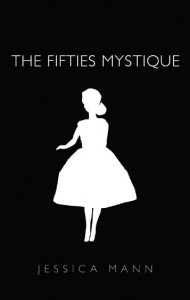 Published by Quartet 29 March 2012
Published by Quartet 29 March 2012
222pp, paperback, £12.00
Reviewed by N.J. Cooper
Jessica Mann, critic, crime novelist, and author of well-received non-fiction, was moved to write this personal account of life in the 1950s by younger women who ‘long to put the clock back to the post-war years when life seemed prettier and nicer.’ Some of those who are fighting to balance careers and motherhood, feeling guilty that they are short-changing both their children and their colleagues or employers, believe that women who grew up just after the Second World War had a much easier time.
The reality, as Mann shows in this short but powerful memoir, was entirely different. Where Betty Friedan in her classic The Feminine Mystique laid bare the unnameable miseries of life for housewives in America, Mann offers a picture of an upper-middle-class Cambridge graduate coming of age before the feminist battles of the 1960s. Her life, like that of so many other educated women, was ruled by deference, ludicrous social codes, and the general assumption that men were worth more than women. She quotes the president (male) of a top American college for women telling the new students that their years at Radcliffe would ‘prepare them to be splendid wives and mothers’, and an agony aunt dispensing advice to new brides in the 1950s: ‘Be a little gay and a little more interesing for him. His boring day may need a lift and one of your duties is to provide it… Listen to him… Remember, his topics of conversation are more important than yours.’ [my italics]
Mann’s choice of quotations from contemporaries, novelists, journalists and scholars is particularly acute and had me grinding my teeth in rage, and yet almost more powerful is her straightforward, crisply written account of the relative privations of the age. Young graduates embarking on adult life now, burdened with debt and wondering whether they will ever earn a living wage, let alone enough to fund their old age, may well look back jealously at the years when their forebears could expect a full grant that would pay their fees and living expenses. But they would probably find the life lived by Jessica Mann and her contemporaries as hard to bear as she did.
Not only was everything dreary and smelly, but inefficient contraception meant that any extra-marital (and a great deal of marital) sex was only the prelude to weeks of severe anxiety. Inadequate sanitary protection meant monthly horrors for women, who were always afraid of what might be showing on the back of their skirts. Food was limited and badly cooked. The profligacy with clothes and meals out and alcoholic drinks that is customary now would have shocked everyone then.
The Fifties Mystique is an ideal corrective for any woman who looks with nostalgia at an era when she would not have been expected to pay her share of the bills and mortgage. It should be required reading for any man who fantasizes about having a wife waiting for his arrival home, not only with a delicious dinner ready cooked, but also an eagerness to listen to his important conversation – and also for all the surviving husbands of those years who wonder why their wives are quite so angry.
